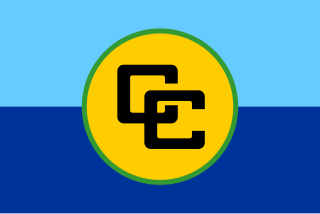Related Research Articles
A trade union or labor union, often simply referred to as a union, is an organisation of workers intent on "maintaining or improving the conditions of their employment", such as attaining better wages and benefits, improving working conditions, improving safety standards, establishing complaint procedures, developing rules governing status of employees and protecting and increasing the bargaining power of workers.

Trotskyism is the political ideology and branch of Marxism developed by Russian revolutionary Leon Trotsky and some other members of the Left Opposition and Fourth International. Trotsky described himself as an orthodox Marxist, a revolutionary Marxist, and Bolshevik–Leninist, a follower of Marx, Engels, and 3L: Vladimir Lenin, Karl Liebknecht, and Rosa Luxemburg. He supported founding a vanguard party of the proletariat, proletarian internationalism, and a dictatorship of the proletariat based on working-class self-emancipation and mass democracy. Trotskyists are critical of Stalinism as they oppose Joseph Stalin's theory of socialism in one country in favour of Trotsky's theory of permanent revolution. Trotskyists criticize the bureaucracy and anti-democratic current developed in the Soviet Union under Stalin.

British Honduras was a Crown colony on the east coast of Central America, south of Mexico, from 1783 to 1964, then a self-governing colony, renamed Belize in June 1973, until September 1981, when it gained full independence as Belize. British Honduras was the last continental possession of the United Kingdom in the Americas.
Collective bargaining is a process of negotiation between employers and a group of employees aimed at agreements to regulate working salaries, working conditions, benefits, and other aspects of workers' compensation and rights for workers. The interests of the employees are commonly presented by representatives of a trade union to which the employees belong. The collective agreements reached by these negotiations usually set out wage scales, working hours, training, health and safety, overtime, grievance mechanisms, and rights to participate in workplace or company affairs.

The People's United Party (PUP) is one of two major political parties in Belize. It is currently the governing party of Belize after success in the 2020 Belizean general election, winning a majority of 26 seats out of 31 in the Belizean House of Representatives. It is a centre-left Christian democratic party. The party leader is Johnny Briceño, who currently serves as the Prime Minister of Belize.

The Workers' Socialist Federation was a socialist political party in the United Kingdom, led by Sylvia Pankhurst. Under many different names, it gradually broadened its politics from a focus on women's suffrage to eventually become a left communist grouping.

Public Services International (PSI) is the global union federation for workers in public services, including those who work in social services, health care, municipal services, central government and public utilities. As of November 2019, PSI has 700 affiliated trade unions from 154 countries representing over 30 million workers.

The 2005 protests in Belize are two separate but related incidents of civil unrest in the Central American nation, occurring in January and April.
The Catholic Church and politics concerns the interplay of Catholicism with religious, and later secular, politics. Historically, the Church opposed liberal ideas such as democracy, freedom of speech, and the separation of church and state under the grounds that "error has no rights". Eventually accommodated these ideas and began to view religious liberty as a positive value during and after the Second Vatican Council.
The General Workers' Union (GWU) was a general union in Belize.

The Ceylon Workers' Congress (CWC) is a political party in Sri Lanka that has traditionally represented Sri Lankan Tamils of Indian origin working in the plantation sector of the economy.

The CARICOM Single Market and Economy, also known as the Caribbean Single Market and Economy (CSME), is an integrated development strategy envisioned at the 10th Meeting of the Conference of Heads of Government of the Caribbean Community (CARICOM) which took place in July 1989 in Grand Anse, Grenada. The Grand Anse Declaration had three key Features:
- Deepening economic integration by advancing beyond a common market towards a Single Market and Economy.
- Widening the membership and thereby expanding the economic mass of the Caribbean Community.
- Progressive insertion of the region into the global trading and economic system by strengthening trading links with non-traditional partners.

Philip Stanley Wilberforce Goldson was a Belizean newspaper editor, activist and politician. He served in the House of Representatives of Belize as member for the Albert constituency from 1965 to 1998 and twice as a minister. Goldson was a founding member of both of Belize's current major political parties, the People's United Party (PUP) in the 1950s and the United Democratic Party (UDP) in the 1970s. He was also the leading spokesman of the hardline anti-Guatemalan territorial claims National Alliance for Belizean Rights party in the 1990s.
The Union générale des syndicats algériens was a communist trade union in Algeria from 1954 to 1957.
see alsoHuman rights in Colombia

The Socialist Party is a Trotskyist political party in England and Wales. Founded in 1997, it had formerly been Militant, an entryist group in the Labour Party from 1964 to 1991, which became Militant Labour from 1991 until 1997.

The Nationalist Movement seeking independence for Belize first arose in the 1930s and 1940s. Three groups played important roles in developing the movement. One group consisted of working-class individuals and emphasised labour issues. This group originated with Antonio Soberanis Gómez and the Labourers and Unemployed Association (LUA) between 1934 and 1937 and continued through the General Workers Union (GWU). The second group, a radical black nationalist movement, emerged during World War II. Its leaders came from the LUA and the local branch of Marcus Garvey's Universal Negro Improvement Association (UNIA). This group called itself variously the British Honduras Independent Labour Party, the People's Republican Party, and the People's National Committee. The third group consisted of people such as the Christian Social Action Group (CSAG) who engaged in electoral politics within the narrow limits defined by the constitution. From the 1950s onwards the nationalist movement came to be dominated by the People's United Party which led the country to independence in 1981.
Anarchism in Austria first developed from the anarchist segments of the International Workingmen's Association (IWA), eventually growing into a nationwide anarcho-syndicalist movement that reached its height during the 1920s. Following the institution of fascism in Austria and the subsequent war, the anarchist movement was slow to recover, eventually reconstituting anarcho-syndicalism by the 1990s.
References
- 1 2 3 Alexander, Robert J. (2004). A History of Organized Labor in the English-Speaking West Indies. Westport, Connecticut: Praeger. ISBN 0275977439.